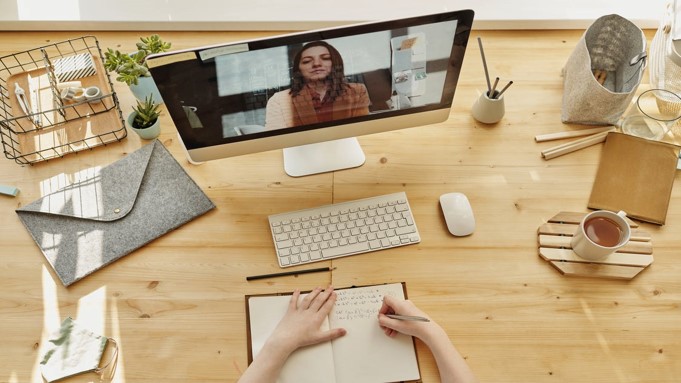With the onset of the Covid-19 pandemic, people’s lives across the globe turned upside down. Many professions and industries found themselves unprepared to adapt to this new lifestyle and struggled to find their place in this new way of being. Even for the qualitative researchers, there was an immediate pressure to adapt to this new scenario.
Qualitative research takes pride in learning about their participant’s in-depth. Their focus is not so much on the number of participants but rather on delving deeply into their participant’s lives. Thus, most qualitative research methods require the participant and researcher to be physically present in the same space. Whether its focus groups, in-depth interviews, or ethnographies—in each of these, the participants and researcher are physically present in the same space.
Since the last decade, there is burgeoning fascination with digital methods. There has been an ongoing discussion of the ways in which digital technologies can allow us to understand consumers. One of the most commonly cited arguments in favour of digital methods is, that it allows us to stay in touch with a consumer without being physically present in the same location. It allows us an opportunity to capture data in real time.
While we did have digital methods in our repertoire, it has always been accompanied with more traditional face-to-face methods in market research spanning both academia and industry. This was primarily because of the way in which we understood research. Thus, even though there was an optimistic buzz around digital methods, they were not the primary medium for qualitative researchers to learn about their participants.
With the onset of Covid-19, qualitative researchers have had to adapt to using digital technologies to conduct research. As researchers, we are trying to familiarize ourselves not just with the technology but with ways to make the data-collection experience enriching and fulfilling.
In the following blog, I share a few ways to make the digital research experience more empathetic. As researchers are not physically engaging with their participants, building trust has become even more critical. Actively showcasing empathy, will allow participants to develop a sense of trust despite being separated through a screen. Participants are likely to feel comfortable in expressing themselves only if they feel they can trust you and your research.
A relaxed environment
Qualitative interviews are generally at least 1.5 – 2 hours which is a long time for someone to sit in front of their screens and attentively engage. Since, we want people to share their stories, memories, experiences etc. it’s important to ensure that they are not getting bored, tired, or restless after some time.
- Ask them to keep some water or any hot or cold beverage of their choice along with some chips or anything to snack on while they talk to you. At the very start of the research, let them know that it would be completely fine to keep munching on these while they are talking. It will allow them to feel more at ease and less formal.
- The researcher can also keep some water and chips with them. In the beginning, the researcher can consume a few chips as the participant might feel more comfortable if they see the researcher doing the same.
- Start by asking them about their current lockdown experiences. Share a little about your experiences as well. It has not been easy for people to cope with the current on-going pandemic. People have been craving for human contact. Thus, as researchers we can spend at least a little time genuinely engaging with them as it might provide a little relief from the every-day stresses. Further, it will also give them an opportunity to get to know you a little.
- This would be especially useful in a remote research as the participant is not physically present in the same location as the researcher and thus can’t observe their body language at all.
- Sometimes at the start of a research, you can have a small ice-breaking activity to develop a rapport and comfort.
Be grateful for their time
Consumers, are people who have lives of their own. They have a job, a family, a routine and a schedule just like us. It is always important to express our gratitude by sharing with them how helpful their contribution is to our research. Gratitude can be expressed at different stages:
- At the time of recruitment, when they agree to take part: You can send out an email to thank them for agreeing to be a part of your research.
- Prior to the start of the interview and at the end of the interview: This can be done verbally during the call.
- Once the content is released: You can send out an email to all the participants sharing some interesting highlights/report/blog (if it’s not confidential) and highlight how insightful and helpful their contribution has been.
Reassure your participants
Participants might not be as comfortable with technology as you are and it’s important to make them feel comfortable about it. Generally at the start of an interview, a researcher introduces themselves, the research project etc. Additionally, you can also state that interruptions are completely okay and if someone in the family needs them or they feel they need to check on something it would be completely okay to stop the interview and take a 5 minute break. You could take a break mid-way and ask them in case they want to check on anything, use the washroom etc. as they might be hesitant to speak up
Let your participants think
It is important to be mindful of the fact that your participants may take some time to ponder over a question that you have asked them. Generally, it is a lot easier to gauge this when you are physically in the same space as them. While conducting remote research, be consciously aware of allowing your participants some time to think, ponder and frame their thoughts. By quickly covering the silence you might stop them mid-way from sharing their opinions.
We hope these tips help you in forming a better rapport with your participants!
Are there are any other practices that you follow to ensure empathy? We would love to hear about them!
About the author

Rupali Kapoor works as the Research Officer for the Consumer Culture Lab at IIM Udaipur. She is trained in social-cultural anthropology from UCL. She is interested in decoding our everyday interactions with spaces, objects and fellow beings.
